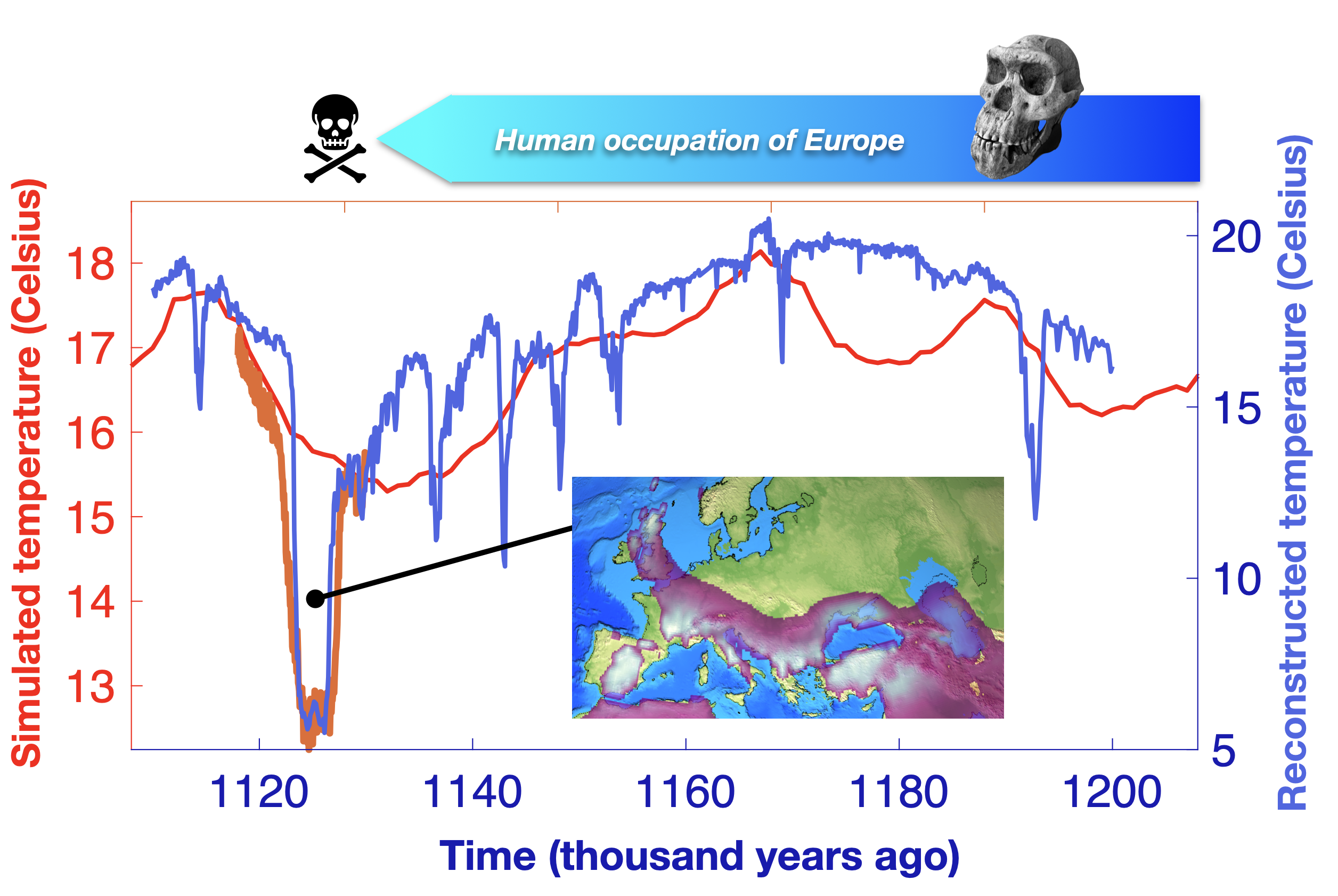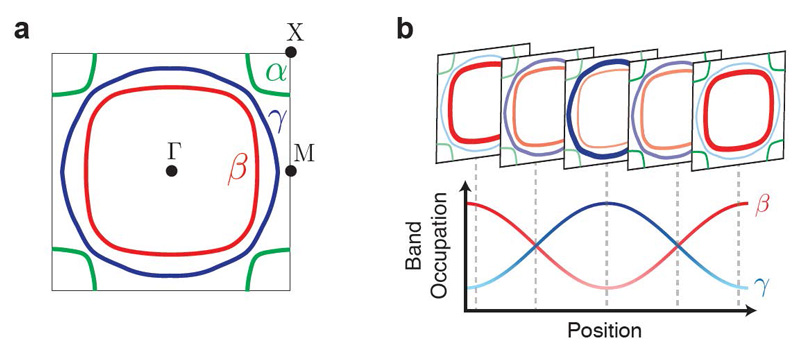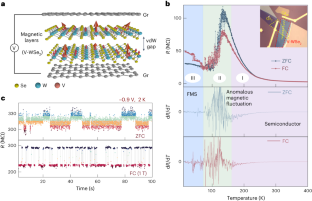2023-08-11 韓国基礎科学研究院(IBS)
 Fig. 1: North Atlantic cooling event 1.127 million years ago, which contributed to the depopulation of Southern Europe. (Photo credit Homo erectus skull, Axel Timmermann). Pink shading in map highlights areas, where early human species suffered a major reduction in habitat suitability due to cooling, drying and reduction in food resources.
Fig. 1: North Atlantic cooling event 1.127 million years ago, which contributed to the depopulation of Southern Europe. (Photo credit Homo erectus skull, Axel Timmermann). Pink shading in map highlights areas, where early human species suffered a major reduction in habitat suitability due to cooling, drying and reduction in food resources.
◆この研究は英国、韓国、スペインの国際的な科学者グループによって発表され、前例のない気候の変動が初期人類の歴史に影響を及ぼしたことを示している。
<関連情報>
- https://www.ibs.re.kr/cop/bbs/BBSMSTR_000000000738/selectBoardArticle.do
- https://www.science.org/doi/10.1126/science.adf4445
極端な氷河期の冷え込みが、更新世初期のヨーロッパでヒトの人口減少を引き起こした可能性が高い Extreme glacial cooling likely led to hominin depopulation of Europe in the Early Pleistocene
Vasiliki Margari,David A. Hodell,Simon A. Parfitt,Nick M. Ashton,Joan O. Grimalt,Hyuna Kim,Kyung-Sook Yun,Philip L. Gibbard,Chris B. Stringer,Axel Timmermann, and Polychronis C. Tzedakis
Science Published:10 Aug 2023
DOI:https://doi.org/10.1126/science.adf4445
Editor’s summary
Most of what we know about hominin evolution comes from fossil evidence, and these fossils come from a world shaped by climate and ecological dynamics, as ours is today. The ability to estimate these past environments permits us to better understand the forces that shaped our evolution. Using climate models to estimate past environments and spatial distribution models to predict species occurrence, two studies now reveal details about hominin evolution that fossils alone cannot (see the Perspective by Beverly). Looking at habitat overlap for Neanderthals and Denisovans, Ruan et al. found patterns of interbreeding between the two that correlate with climate and environmental change in Eurasia. Margari et al. have identified a previously unknown climate-driven depopulation of hominins in southern Europe during the early Pleistocene. —Sacha Vignieri
Abstract
The oldest known hominin remains in Europe [~1.5 to ~1.1 million years ago (Ma)] have been recovered from Iberia, where paleoenvironmental reconstructions have indicated warm and wet interglacials and mild glacials, supporting the view that once established, hominin populations persisted continuously. We report analyses of marine and terrestrial proxies from a deep-sea core on the Portugese margin that show the presence of pronounced millennial-scale climate variability during a glacial period ~1.154 to ~1.123 Ma, culminating in a terminal stadial cooling comparable to the most extreme events of the last 400,000 years. Climate envelope–model simulations reveal a drastic decrease in early hominin habitat suitability around the Mediterranean during the terminal stadial. We suggest that these extreme conditions led to the depopulation of Europe, perhaps lasting for several successive glacial-interglacial cycles.



